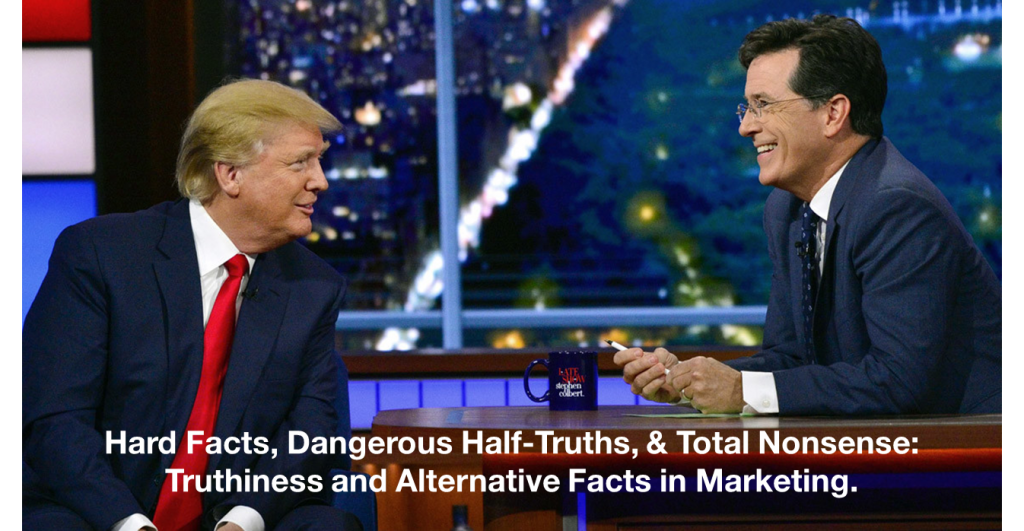I believe in evidence based marketing. Too often, I hear just opinion, not fact.
Stephen Colbert, the American comedian, coined the word ‘truthiness’ to refer to arguments not based on fact but what we would like to be true. Here is a great quote from him:
“It used to be, everyone was entitled to their own opinion, but not their own facts. But that’s not the case anymore. Facts matter not at all. Perception is everything. It’s certainty. People love the president because he’s certain of his choices as a leader, even if the facts that back him up don’t seem to exist. It’s the fact that he’s certain that is very appealing to a certain section of the country. I really feel a dichotomy in the American populace. What is important? What you want to be true, or what is true?…”
This is exactly the same for marketing. So many people are inventing new names for things that have been around for years, and promote ideas about branding without oworrying about such trifles as evidence. See ‘Facebook Advertising’, ‘Inbound Marketing’, ‘Content Marketing’ for similar nonsense.
In Hard Facts, Dangerous Half-Truths, and Total Nonsense: Profiting from Evidence-Based Management, Jeffrey Pfeffer addressed this in 2006 (yes – 2006!)
They point out that too much common management “wisdom” isn’t wise at all, but instead is based on flawed knowledge of best practices that are poor, incomplete, or outright wrong. The example is ‘rank and yank’ – getting rid of your notional bottom 10% of staff each year.
Unfortunately, marketers often base their actions not on evidence or deep knowledge, but on blind faith — mindlessly copying what others have done, letting too much ride on gut instinct or intuition, and acting without questioning the myths. So, lets try decision making and action that is driven by hard facts rather than half-truths or hype in marketing.




